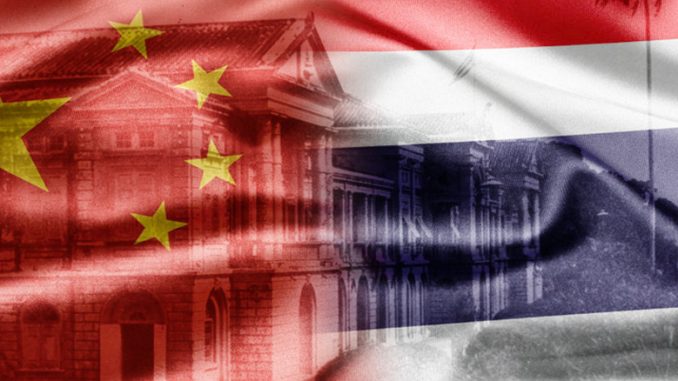
On May 14, 2023, a political earthquake shook the Thai body politic. Move Forward, the successor party to the disbanded Future Forward Party, unofficially won 151 of 500 House seats on the back of nearly 14.5 million popular votes, positioning Pita Limchareonlat to be Thailand’s 30th Prime Minister and the Move Forward Party (MFP), with its ideologically based reform agenda, in the driver’s seat of Thai policy. However, Pita and the MFP have failed to secure a coalition and now Thailand is in a political deadlock. Broadly speaking, Thai society is divided. Those on the right favor a conservative social agenda with the King as the head of state. Those on the left of the Thai political spectrum are progressive, young, eager for social change and largely favor Western values such as freedom of speech, social equality and democracy. Given the socio-political uncertainty, it is important to ask will Thailand rebalance its foreign policy towards the West, reversing the last decade of foreign policy direction? Or will Bangkok continue moving towards the embrace of the region’s burgeoning hegemon, China?
Dating back to the reign of King Rama IV, Thailand’s foreign policy has been one of ‘Bending with the Wind’. Bamboo diplomacy served Thailand well during the colonial period allowing Siam to be the only Southeast Asian country to resist formal colonization from Western powers. During the exceedingly dangerous Cold War, Thailand’s leadership positioned Thailand to move and negotiate, choosing sides. By having a legitimate foot in the Non-Aligned movement via Bandung, whilst being a major non-NATO security treaty partner with the United States, whilst opening relations with the PRC in advance of America’s withdrawal from the region in 1975, Thailand was able to survive, thrive and emerge from the Cold War in a position of regional leadership. By turning ‘Battlefields into Markets’ and embracing globalization, Thailand has done well for itself in the post-Cold War world, notwithstanding the previous 17 years of internal political instability. However, after the 2014 coup, Thailand’s military leadership and its 2019 quasi-military government have steered Thailand evermore towards Chinese markets, security cooperation and social intertwinement. It is the view of the authors that Thailand has largely abandoned ‘Bamboo Diplomacy’ and become dangerously dependent on China for its economic well-being. Thai security relationships have become unmoored from its traditional foundations, and this risks placing Thailand in a structurally disadvantageous position to its national security, sovereignty and independence. The authors will consider military ties, transnational criminal networks, and the economic and trade relations in agriculture and natural resources to advance the notion that a rebalancing towards ‘Western’ power centres is required to restore Thailand’s regional leadership and national security position.
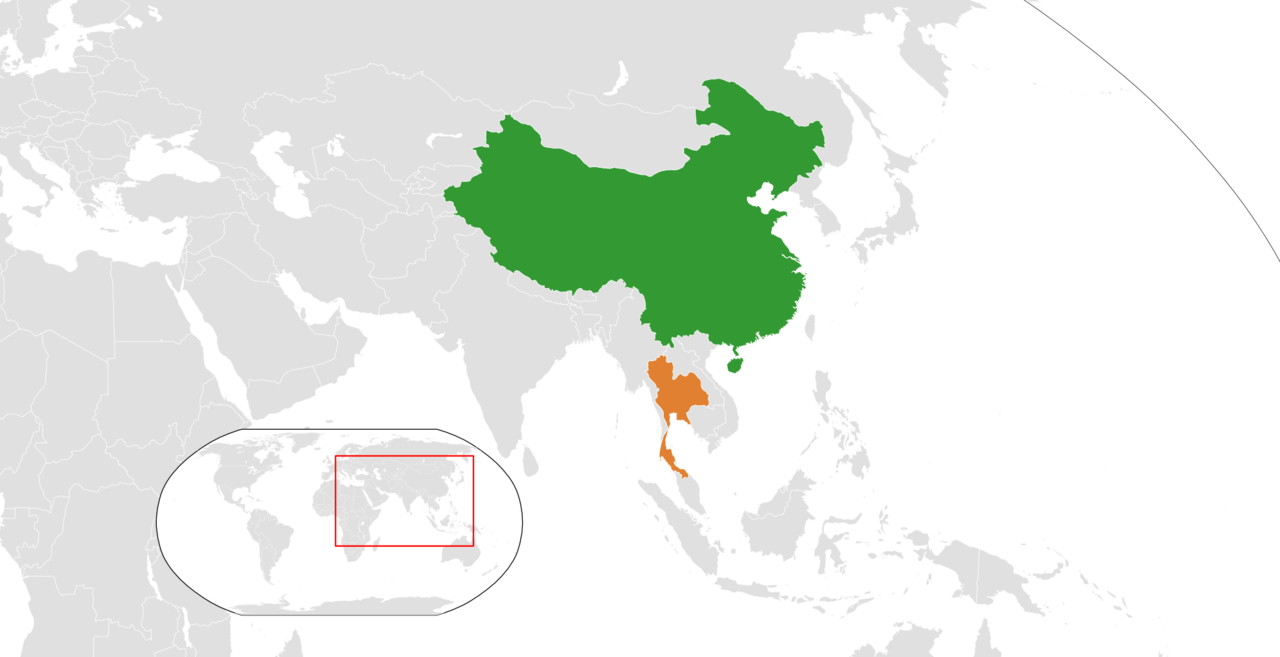
Military Relations
2023 marks the 190th anniversary of Thai US of diplomatic relations, an association going back to the Treaty of Amity and Commerce signed in 1833. The once strong alliance between the United States and Thailand, which in the latter half of the 20th century was mutually beneficial in countering Chinese and Vietnamese influence in Southeast Asia, has evolved due to changing circumstances. Although democratic values were not necessarily a shared factor between the United States and Thailand at that time, the Thai military and royalist elites regarded the United States as the guarantor of their survival and interests. Presently, however, the Thai military perceives China as having a much stronger vested interest in continuing their rule.
The strategic interests shared between the US and Thailand are limited. The Thai military has played a significant role in suppressing hopes for democracy and steering the country towards authoritarianism. Thailand’s 2006 and 2014 military coups resulted in the USA suspending military defence ties. Consequently, the military-backed ruling class in Bangkok sought closer relations with Beijing, considering it a more dependable defence partner and supportive of their autocratic rule. Since the coup in 2014, the military has positioned itself as the protector of the Thai monarchy. It views democratic politics as threatening the monarchy’s existence, favouring a transition towards a republic. China’s dedication to ensuring the perpetuation of autocracy in Thailand clearly indicates a significant transformation in the values and priorities of the Thai military elites. This shift extends beyond China’s ability and willingness to influence and corrupt the leadership of the Thai military.
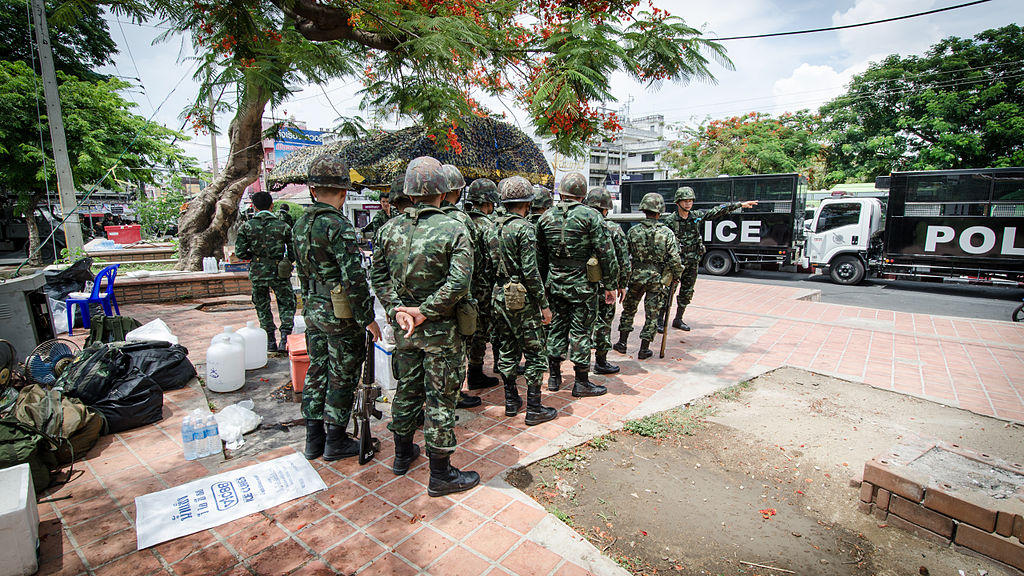
In the last few years, China has surpassed the United States as the primary supplier of Thai military equipment. From 2014-2018 China’s arms exports to Thailand increased five-fold. The governing military junta in Thailand has received a range of resources from China, including VT-4 main battle tanks and a Type 071E amphibious dock ship. The People’s Liberation Army Navy (PLAN) currently has five vessels of the Type 071 class in its fleet, with three more expected to join soon. Notably, Thailand became the first export customer for this type of vessel.
Additionally, there is a pending multi-billion-dollar agreement for the acquisition of Yuan-class submarines, which is likely to be finalized in the coming months. This deepening military cooperation with Beijing has been partly driven by the American disapproval of the Thai junta and the 2014 coup exemplified by Washington’s cutting off of military aid with Beijing filling the political vacuum. While the U.S. has expressed concerns about human rights violations in Thailand, China has been a supportive ally.
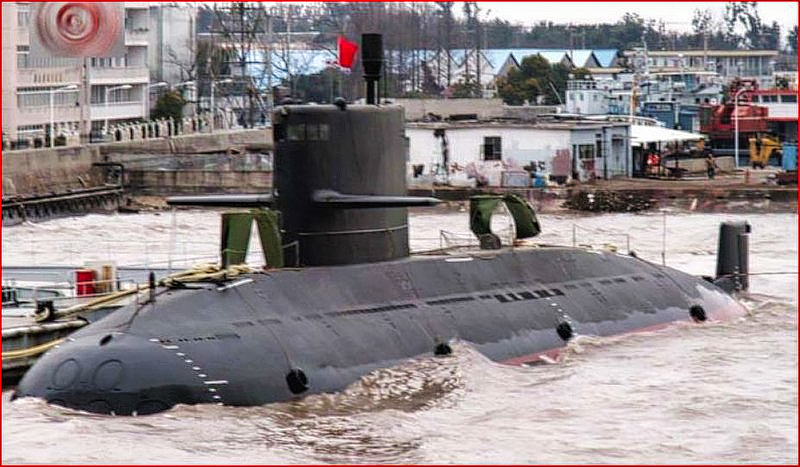
Given Beijing’s expansion in the Pacific region, the United States has strengthened its alliances with several countries, including Japan, South Korea, the Philippines, and Australia, through the Australia-United Kingdom-United States (AUKUS) tripartite security arrangement. The U.S. has also maintained military exercises with the Thai armed forces, notably the Cobra Gold drills, which are an important indicator of the bilateral military relationship. Cobra Gold is a significant multilateral military exercise in Asia that involves the U.S. and six Asian nations, and it serves to address the security interests of the participating countries. As the United States aims to bolster its military alliances in the region to counter a more assertive China, the 2023 Cobra Gold event witnessed the largest deployment of U.S. troops in a decade, with a focus on amphibious operations. However, it is worth noting that Thailand’s military alliances and training with China have garnered considerable attention. Among the Southeast Asian countries, Thailand stands out as the only country that conducts annual military exercises with all three branches of the People’s Liberation Army (PLA). One noteworthy example is the Falcon Strike joint exercises, which have taken place since 2015 but were halted in 2020 due to the global COVID-19 pandemic. The 2022 Falcon Strike event marked a significant advancement since its inception, demonstrating the strong ties between Beijing and Bangkok in the military sphere.
An example of friction between the Thai security services and the Ministry of Foreign Affairs has been in the Lancang Mekong Cooperation. The Lancang cooperation framework ostensibly covers cooperation in infrastructure, water management and other areas of connectivity but has increasingly expanded into non-traditional security areas such as international crime, human trafficking and related fields. Here is the rub: recently drafted treaties covering transnational crime and human trafficking have hit strong sticking points with the Thais. Chinese insistence on data sharing, joint patrols, joint investigative details and cross-border police jurisdictional initiatives have hit the nerve of Thai national security and sovereignty. Previous demonstrations of Chinese flex on extraditing persons from Cambodia and Laos to face criminal prosecution in China as well as the dramatic crackdown on gambling in Sihanoukville upon the insistence of Xi Jing Ping, have unsettled nerves in Bangkok. Additionally, the recent uptick in Chinese criminal network activity in Thailand was precipitated by that crackdown in Sihanoukville. The spillover of gambling dens, drug trafficking, prostitution, kidnapping, murder and attendant corruption in Thai officialdom is set to be a friction point between Beijing and Bangkok. Overall, the creep of perceived Chinese extraterritoriality into sovereign jurisdiction and national security affairs is only the first step in China’s ascendancy to regional hegemony.
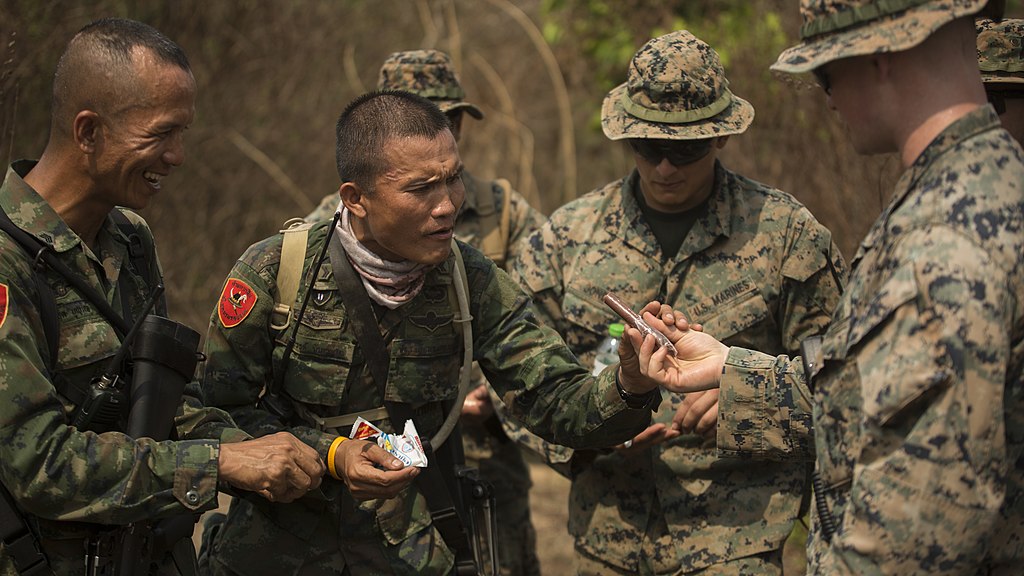
Economic Relations
According to some analysts, the previous decade has seen specific sectors of the Thai economy become over-reliant on the Chinese export market. This is most acute in the fruits and nuts agricultural industry but also extends to other areas of agriculture. Thai export data for fresh fruits, nuts and melons to China since 1997 have grown from nil to nearly $5 Billion but most strikingly in the last decade from just over $300 million to $4.99 billion. Other fresh fruit totalled $3.66 billion, with dried and frozen varieties adding $1.3 billion to the export total. This culminated in 2022 trade figures that show China as taking up some 24.5% of Thailand’s agricultural export trade, an expansion of some 50% from the annual year 2021 with a total export value of $14.6 billion in 2022. Most striking is how Chinese supply chains have moved right up to Thai farms and orchards, capturing double the value chain as durian in China fetches twice the price locally. This is led by durian, bananas, coconuts, dragon fruit and longan, whereby Chinese merchants buy directly or, in many cases, before the annual harvest, thereby reaping the profit of the international supply chain into China. The highest volumes were seen in durians, where China imported some 95% of its total, and coconuts at some 523,000 tons. Tourism, as a critical sector of the Thai economy, has also become dangerously dependent on the Chinese market. With the 2014 coup, visa restrictions were lifted by Bangkok, which led to an enormous increase in Chinese tourists from 4 million to over 11 million in 2019. The problem with this low spending of Chinese tourists is $0 tours and environmental degradation. The need to diversify and upscale the Thai tourism demographic away from China is perfect, as COVID-19 is now in the rear-view mirror. And as we all know; tourism can take a sharp fall with a simple travel warning of the home country. The need to diversify and control supply chains and value is far more apparent in a post COVID world. A possible knock-on effect of any trade friction with China over geopolitical concerns is continued access to the Chinese market, which can be altered at the political whim of Chinese leadership. This was seen in the Chinese reaction to Australian participation in the Quad and Aukus security relationships to counter Chinese policies in the South China Sea. Geopolitical decisions by the Morrison government led to China placing tariffs on Australian wine, barley, coal, lobsters, timber, red meat and cotton, thereby hitting the Australian agricultural and mining industries where it hurts. In the Thai context, this could be a prelude to serious ramifications, as some 30% of the Thai labour force is engaged in the agricultural sector.
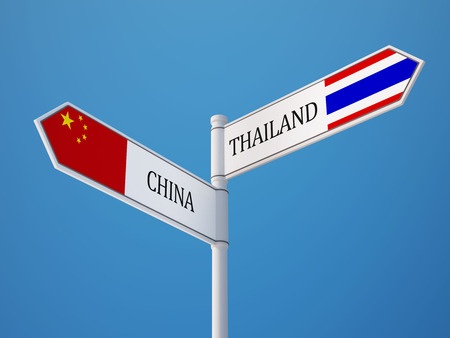
In conclusion, since the 2014 coup, the military-led governments in Thailand have leaned on their relationships with the Chinese both economically and militarily. Given the political instability, the next government may be faced with a great degree of social unrest. This carries substantial implications for the Bangkok elites and the large number of generals within the Thai military, potentially resulting in significant consequences. The electoral success of Pita and the Move Forward Party further indicates that the general population is acutely conscious that the Thai military is responsible for the political instability, under-performing economy, social disparities, and pervasive corruption within the country. As long as the Thai military persists in obstructing the public’s democratic aspirations for its own narrow interests and personal enrichment, Thailand will remain weakened and plagued by political instability.
William J. Jones
Mahidol University International College
Douglas L. Rhein
Mahidol University International College
